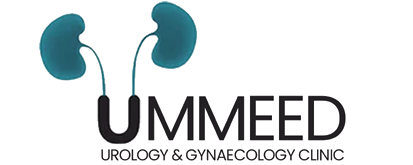Navigating the Painful Path: Understanding and Managing Kidney Stones.
Kidney stones, a condition affecting millions worldwide, can bring about excruciating pain and discomfort. Formed when certain substances in the urine crystallize, kidney stones can vary in size and composition. In this article, we delve into the causes, symptoms, and treatment options for kidney stones, shedding light on this common yet often misunderstood ailment.
Understanding Kidney Stones
Kidney stones, medically known as renal calculi, are solid masses formed in the kidneys from minerals and salts in the urine. These stones can range in size, from as small as a grain of sand to as large as a golf ball. The composition of kidney stones varies, with calcium oxalate being the most common type. Other types include struvite, uric acid, and cystine stones.
Causes of Kidney Stones
- Dehydration:
- Inadequate fluid intake can lead to concentrated urine, promoting the formation of crystals and stones. Staying hydrated is crucial in preventing kidney stones.
- Dietary Factors:
- Diets high in salt, oxalates, and certain animal proteins can contribute to stone formation. Individuals with a history of kidney stones should pay attention to their dietary choices.
- Medical Conditions:
- Conditions such as hyperparathyroidism and urinary tract infections can increase the risk of kidney stones. Inherited disorders, like cystinuria, can also play a role.
- Obesity:
- Being overweight can alter the metabolic balance, increasing the likelihood of kidney stone formation.
Symptoms of Kidney Stones
- Pain:
- The hallmark symptom of kidney stones is severe pain, often described as excruciating and colicky. The pain may radiate from the back or side to the lower abdomen and groin as the stone moves through the urinary tract.
- Hematuria:
- Blood in the urine is a common sign of kidney stones. The presence of red or brown urine indicates potential injury to the urinary tract.
- Urinary Changes:
- Changes in urination patterns, such as increased frequency or urgency, may be observed. Cloudy or foul-smelling urine can also be indicative of kidney stones.
- Nausea and Vomiting:
- The pain associated with kidney stones can cause nausea and vomiting, adding to the overall discomfort.
Treatment Options for Kidney Stones
- Hydration:
- Adequate fluid intake is crucial in preventing and treating kidney stones. Drinking plenty of water helps dilute urine and flush out minerals, reducing the risk of stone formation.
- Pain Management:
- Severe pain often requires pain management. Nonsteroidal anti-inflammatory drugs (NSAIDs) or prescription medications may be prescribed to alleviate discomfort during the passage of kidney stones.
- Medical Expulsion Therapy:
- Medications such as tamsulosin may be prescribed to relax the muscles in the urinary tract, facilitating the passage of stones.
- Extracorporeal Shock Wave Lithotripsy (ESWL):
- This non-invasive procedure uses shock waves to break larger stones into smaller fragments, making them easier to pass through the urinary tract.
- Ureteroscopy:
- A thin tube with a camera is inserted through the urethra and bladder to directly visualize and remove or break up stones in the ureter.
- Surgery:
- In cases where other treatments are ineffective, surgical intervention may be necessary to remove the stone. This is typically done through minimally invasive procedures.
Preventing Kidney Stones
- Stay Hydrated:
- Maintaining adequate fluid intake, especially water, is key in preventing kidney stones. Aim for at least 8-10 glasses of water per day.
- Dietary Modifications:
- Adjusting the diet to limit salt, oxalates, and certain animal proteins can reduce the risk of stone formation. Consultation with a healthcare professional or a registered dietitian may be beneficial.
- Regular Exercise:
- Engaging in regular physical activity helps maintain a healthy weight and reduces the risk of metabolic imbalances associated with kidney stone formation.
- Medical Evaluation:
- Individuals with a history of kidney stones or those with recurrent symptoms should undergo a medical evaluation to identify underlying causes and develop a personalized prevention plan.
Conclusion:
Kidney stones are a painful and common condition that can significantly impact an individual’s quality of life. Understanding the causes, recognizing symptoms, and seeking timely medical attention are crucial steps in managing kidney stones effectively. With advancements in medical technology and a focus on preventive measures, individuals can navigate the path of kidney stone management and reduce the likelihood of recurrence, ultimately promoting kidney health and overall well-being.







